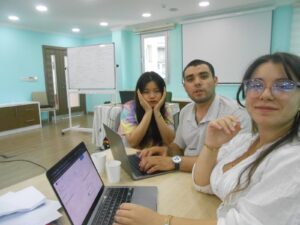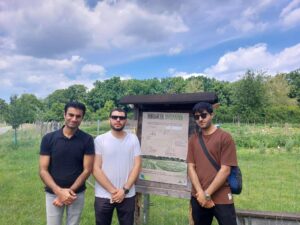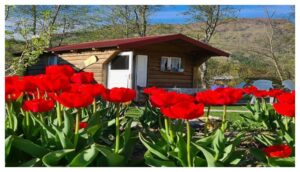I’m Aleksandra, and when I joined the FoodBack job shadowing program, I knew I was stepping into something much bigger than a simple training experience. Over four weeks, I was immersed in the world of agro-food businesses, sustainability, and entrepreneurship. What started with curiosity soon grew into a structured journey of learning, reflection, and vision-building for my own future project.
The first days were all about orientation. I listened to an overview of the agro-food industry, explored the role of key stakeholders, and began to understand the trends shaping the sector today—especially sustainability and innovation. It was a lot to take in, but asking questions, taking notes, and connecting with peers helped me transform initial overwhelm into curiosity.
One of the most powerful lessons came early on: exploring how circular economy principles can turn waste into opportunity. Through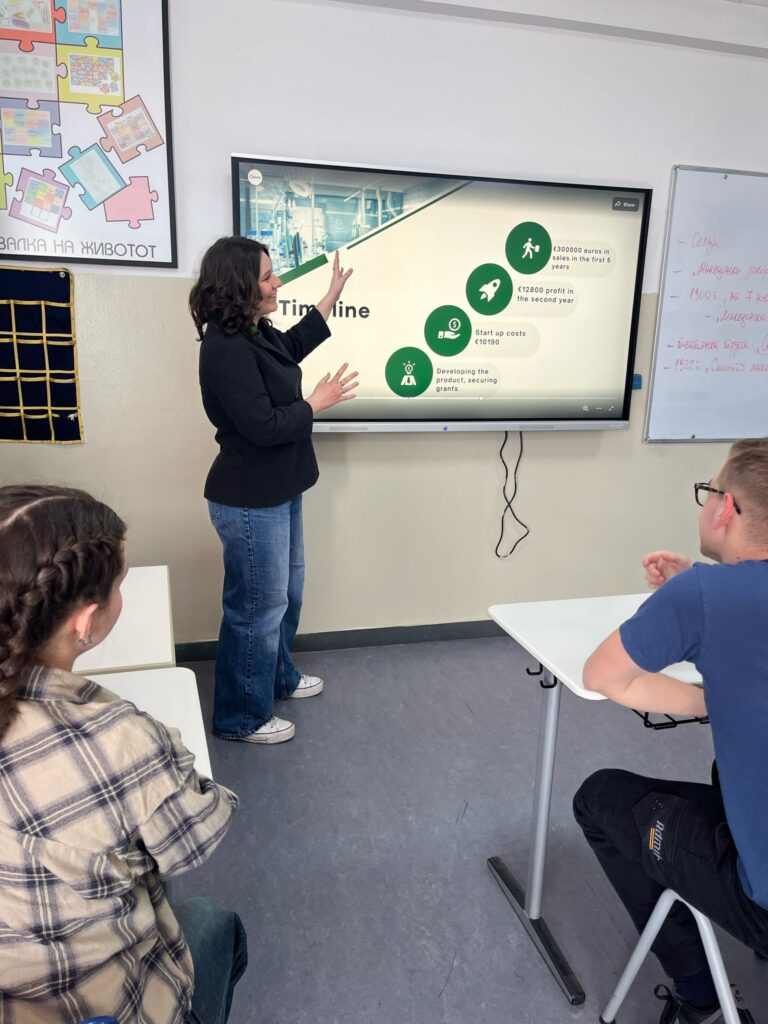 workshops and case studies, I worked with peers to design a waste reduction plan for a hypothetical business. It wasn’t easy at first to imagine how theory could translate into practice, but collaboration and feedback gave me the confidence to see how sustainability can also be economically viable. Each day built on the last. We explored different agro-food business models—farm-to-table, organic farming, cooperatives, and industrial systems—while also tackling the sector’s toughest challenges: climate change, market barriers, and logistics. What I learned was that there’s no single “perfect” model; flexibility, innovation, and collaboration are key.
workshops and case studies, I worked with peers to design a waste reduction plan for a hypothetical business. It wasn’t easy at first to imagine how theory could translate into practice, but collaboration and feedback gave me the confidence to see how sustainability can also be economically viable. Each day built on the last. We explored different agro-food business models—farm-to-table, organic farming, cooperatives, and industrial systems—while also tackling the sector’s toughest challenges: climate change, market barriers, and logistics. What I learned was that there’s no single “perfect” model; flexibility, innovation, and collaboration are key.
By the second week, theory gave way to practical tools. I learned how to use business planning frameworks like the Lean Canvas and SWOT analysis, drafted a business plan for a startup, and even practiced financial forecasting. For someone who initially found numbers intimidating, this was a breakthrough. Step by step, I saw how a strong business plan isn’t just a document—it’s a roadmap that connects vision with action. Hands-on experiences were equally valuable. I worked in a real production setting, joining in processing, packaging, and quality control. It was exhausting but rewarding, giving me a deep appreciation for the workers behind our food systems and reminding me of the importance of sustainability at every stage of production.
FoodBack gave us space to explore the full entrepreneurial journey. I designed branding and marketing strategies, built social media plans, and brainstormed tech-based solutions for agro-food challenges. From customer engagement strategies to sustainable supply chain management, each exercise pushed me to combine creativity with practicality. Financial management was one of the steepest learning curves, but also one of the most rewarding. Drafting budgets, exploring funding opportunities, and testing pricing strategies gave me confidence that my ideas could also stand up to economic realities.
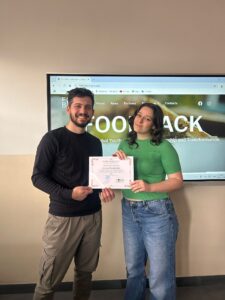 As the program advanced, I explored legal frameworks, customer profiling, and green certifications. I began to see how my values—sustainability, fairness, and innovation—could be embedded into a real business model. Study visits to successful enterprises provided living examples of what’s possible when vision meets persistence.
As the program advanced, I explored legal frameworks, customer profiling, and green certifications. I began to see how my values—sustainability, fairness, and innovation—could be embedded into a real business model. Study visits to successful enterprises provided living examples of what’s possible when vision meets persistence.
The final weeks were about turning all of this into something shareable and concrete. I practiced pitching my business plan, received valuable feedback, and presented to a panel of experts. It was nerve-wracking, but also one of the most empowering moments of the program. On the last day, during our reflection and celebration, I realized how much I had grown. I wasn’t just leaving with notes and ideas—I was leaving with a roadmap, a stronger entrepreneurial mindset, and a network of peers and mentors who will continue to inspire me.
FoodBack has been more than training—it has been a transformative journey. I’ve learned that sustainability and innovation are not add-ons to a business model; they are the foundation. I’ve seen how financial planning and creativity go hand in hand. And above all, I’ve discovered that community—peers, mentors, collaborators—makes the entrepreneurial path richer and stronger.
The road ahead is exciting. My next step is to refine my business plan, deepen my practical experience, and start transforming my vision into reality. Thanks to FoodBack, I now know it’s possible.
Aleksandra


